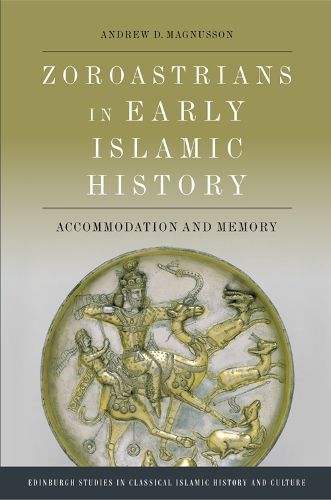Readings Newsletter
Become a Readings Member to make your shopping experience even easier.
Sign in or sign up for free!
You’re not far away from qualifying for FREE standard shipping within Australia
You’ve qualified for FREE standard shipping within Australia
The cart is loading…






What was the status of Zoroastrians after Muslims conquered Iran in the 7th century? Zoroastrians in Early Islamic History addresses this and other issues of intercommunal contact in the early caliphates. It argues that caliphal administrators, following an imperial logic of accommodation, accepted tax from Zoroastrians without recognising them as People of the Book. Later Muslim jurists, uncomfortable with that decision, sought to circumscribe social interaction with Zoroastrians. Local Persian historians remembered the Muslim Zoroastrian encounter differently. They promoted triumphal tales of violence and temple desecration. Meanwhile, Arab Muslim authors used the term ‘Zoroastrians’ to describe pagans, heretics and other perceived deviants. This book juxtaposes these competing memories in order to explore the ambivalence that some Muslims felt about accommodation. Drawing on sources in Arabic and Persian from the Middle East and South Asia, it challenges readers to reconsider assumptions about the nature of interfaith relations in medieval Iran.
$9.00 standard shipping within Australia
FREE standard shipping within Australia for orders over $100.00
Express & International shipping calculated at checkout
What was the status of Zoroastrians after Muslims conquered Iran in the 7th century? Zoroastrians in Early Islamic History addresses this and other issues of intercommunal contact in the early caliphates. It argues that caliphal administrators, following an imperial logic of accommodation, accepted tax from Zoroastrians without recognising them as People of the Book. Later Muslim jurists, uncomfortable with that decision, sought to circumscribe social interaction with Zoroastrians. Local Persian historians remembered the Muslim Zoroastrian encounter differently. They promoted triumphal tales of violence and temple desecration. Meanwhile, Arab Muslim authors used the term ‘Zoroastrians’ to describe pagans, heretics and other perceived deviants. This book juxtaposes these competing memories in order to explore the ambivalence that some Muslims felt about accommodation. Drawing on sources in Arabic and Persian from the Middle East and South Asia, it challenges readers to reconsider assumptions about the nature of interfaith relations in medieval Iran.